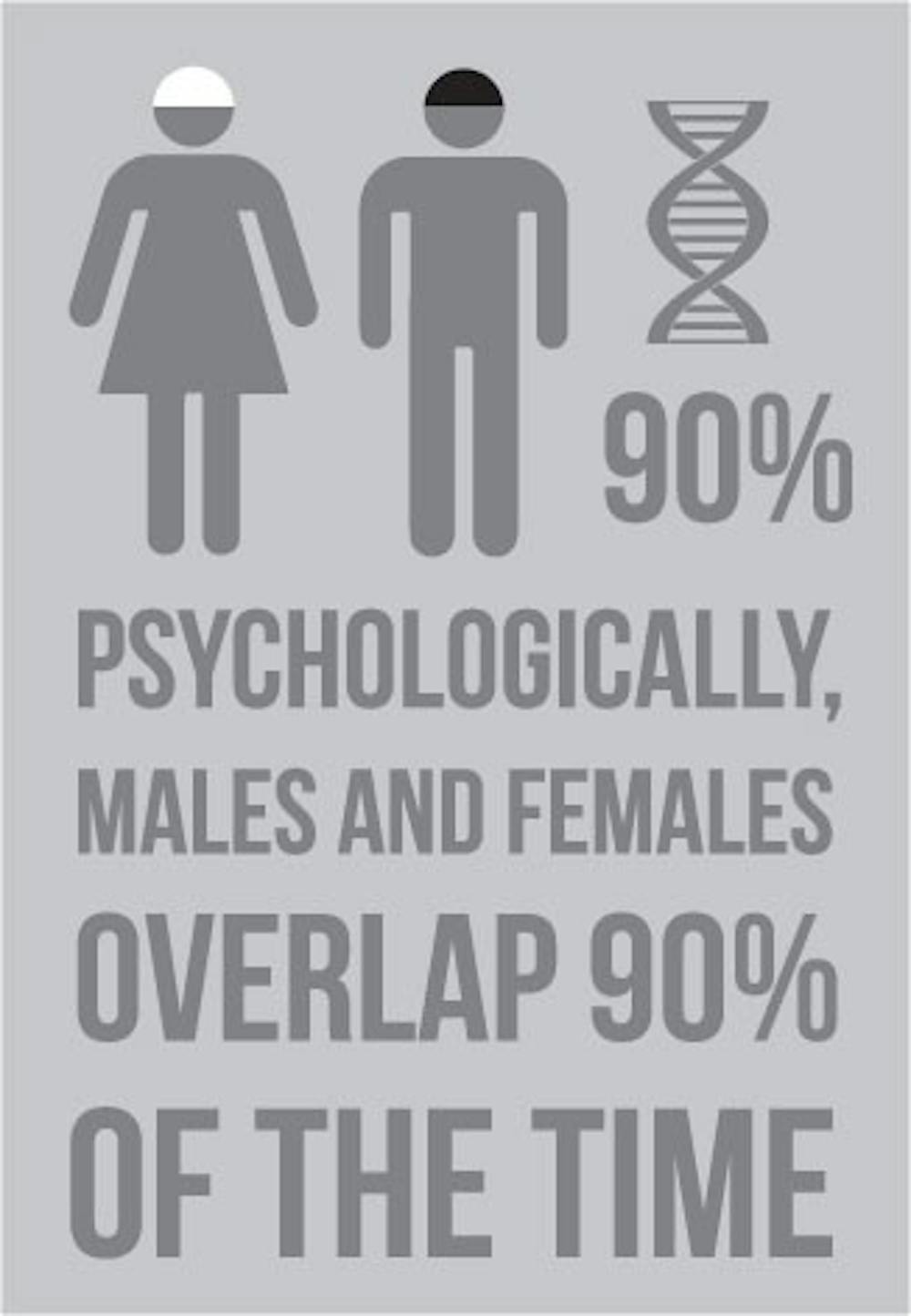By Veronica Toth | Contributor
Last semester, I found myself a part of quite a few conversations about gender-productive, kind and meaningful conversations which I loved. Campus-sponsored movie viewings, especially, did a great job of sparking dialogue. An interesting fact from the documentary The Mask You Live In: psychologically, males and females overlap 90 percent of the time. This leaves a meager 10 percent of psychological gender difference-a 10 percent that is often exaggerated, exploited and used to stereotype.
This information reinforced something I've been convinced of for a long time: our relationships would be much healthier if we were to treat each other as people first.
Although this might sound ridiculously simple, it is not a practice that the church has traditionally embraced. Instead, men and women are often discussed separately in sermons, with their own corresponding sets of temptations and strengths. The issue is that few of us, if any, fit perfectly into these divisions. Yet these gender roles are perpetuated as the biblical way to be, so we try to squeeze ourselves (and others) into gendered boxes.
I think it's important for us to land on a theological position that is as livable as it is biblically sound. If Christianity is a fulfilling and holistic sort of truth, we must be able to hold its doctrines with our hearts as well as our minds. Consulting a template of biblical manhood or womanhood before making decisions is often stilted and exhausting. Many times, I've thought the absence of gender roles would be a profoundly freeing existence, allowing all of us to live as whole human beings.
Many of us are familiar with the complementarian-egalitarian discussion. The complementarian view holds that men and women should fill specified gender roles. A perspective that rejects the gender expectations placed on men and women would be considered egalitarian. There are excellent and biblical reasons for holding both positions and there are a diversity of honorable ways to live under both. However, I personally believe that egalitarianism best reflects the complexity of humans and human relationships.
There is a particular ramification to this approach which we should keep thinking deeply and empathetically about: does the logic of egalitarianism lead to an approval of homosexuality? Some friends and I have been discussing this question recently, and no one seems to have a simple or ready answer. To be clear, I don't think this is a reason to reject egalitarianism any more than confusion about quantum mechanics (how can a particle be in two places at the same time?) justifies rejecting the entire discovery.
To explain this reasoning a little further: for an egalitarian, the differences between men and women are primarily physical. In every other way, men and women are seen as having the same end in life and the same ability to fulfill any duty in marriage. In fact, marriage may be best described as a loving partnership between two individuals whose "roles" are not predefined.
This understanding of gender seems to erode our traditional rationale for considering the practice of homosexuality impermissible. In egalitarian thought, a man and a woman do not complete one another in marriage because of their gender but rather through their unique individual capabilities.
We have thinking and rethinking to do about the interpretation of homosexuality passages in the Bible and about what exactly our physical bodies are meant for.
But I think that recognizing the fundamental similarities of personhood between men and women is a good first step for loving people well. That is a doctrine both my heart and mind can fully embrace.






